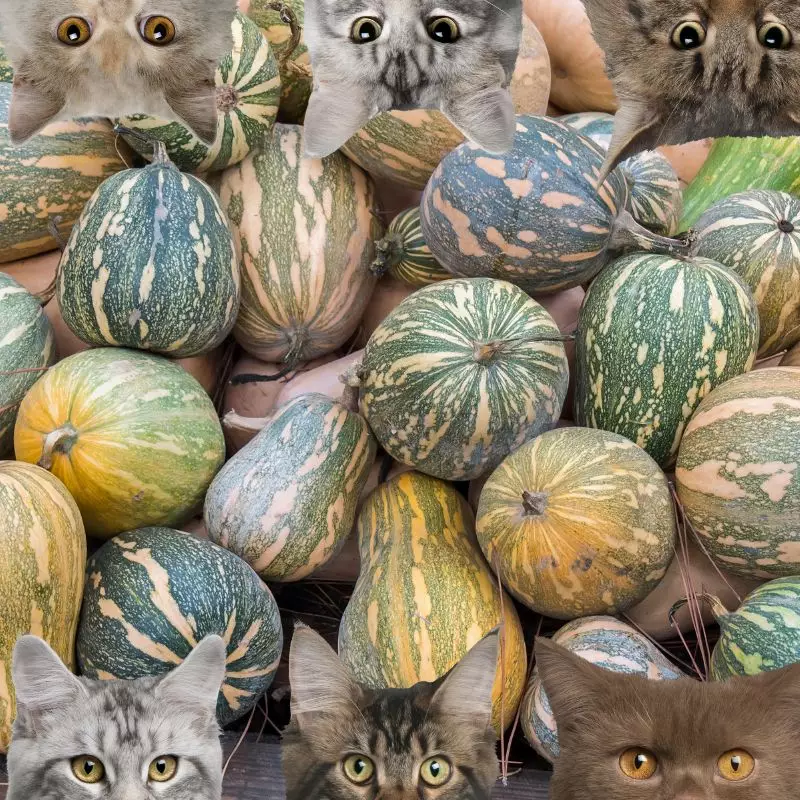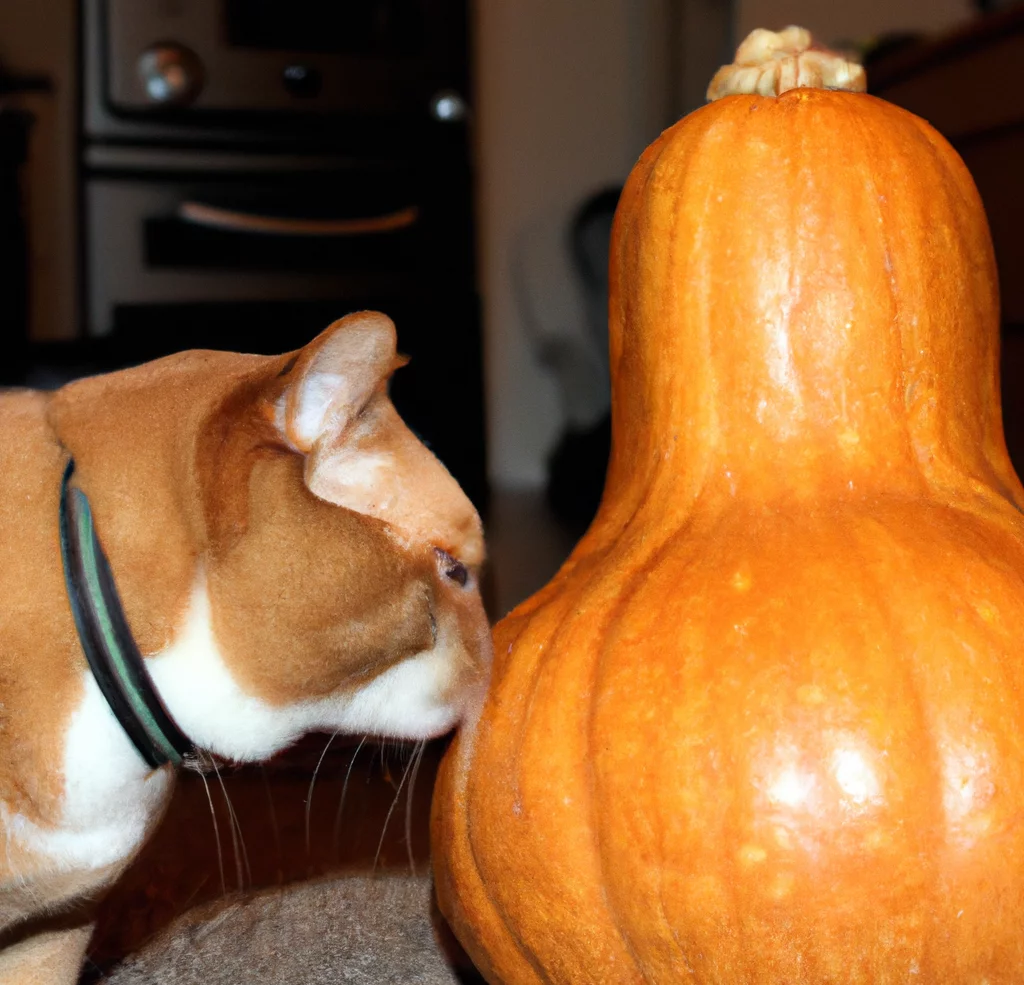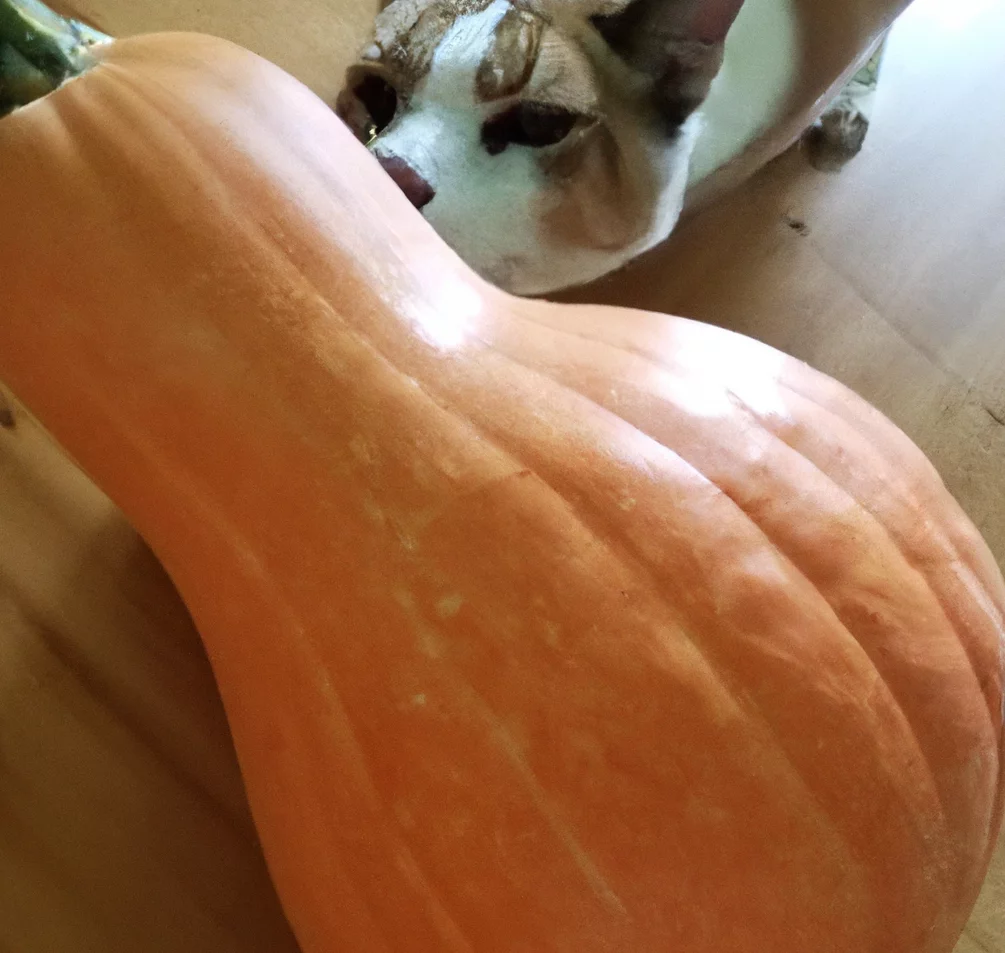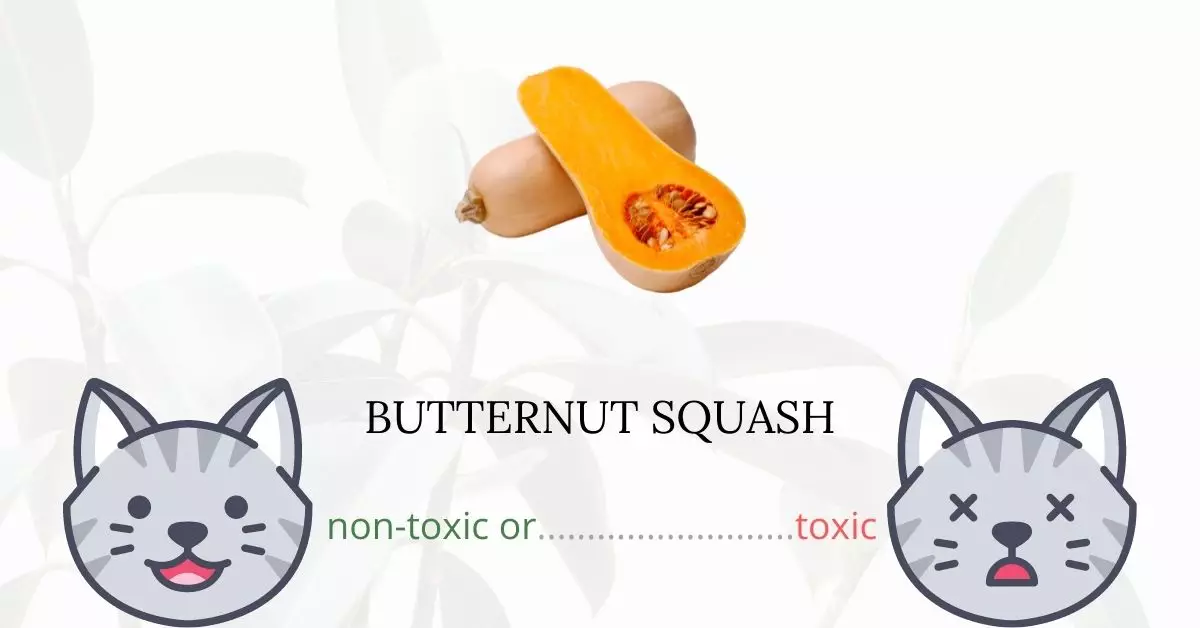Butternut squash is not toxic for cats. In fact, it is recognized as a non-toxic plant by authoritative bodies such as the American Society for the Prevention of Cruelty to Animals (ASPCA).
This article was meticulously crafted in collaboration with a team of experienced DVMs (doctors of veterinary medicine). Thanks to their insights and our in-depth research into high-authority websites, including ASPCA and PetMD, we aim to provide our readers with precise and current information regarding the potential risks linked to various plants, with a focus on Butternut Squash and its effects on cats.
Can Cats Eat Butternut Squash?

Yes, cats can eat butternut squash. Butternut is actually healthy and rich in vitamins and minerals that cats can benefit from.
It is perfectly safe for cats to consume provided that the squash is peeled and properly cooked. Raw butternut squash may cause digestive problems in cats. Since they are carnivorous animals, their bodies cannot completely digest plant matter.
Before feeding a butternut squash to your cats, remember that any additives in cooked meals can affect them. Adding salt or sugar to the butternut squash can have a different effect on cats. For example, butternut pies or muffins, which may contain sugar, are not recommended to give to your cats.
Lastly, while butternut squash is safe and healthy for cats, it should be only given to them occasionally. As mentioned above, cats cannot completely digest plant materials. Thus, too much eating of plants will cause cats to have stomach upset.
What is Butternut Squash?
 Scientifically known as Cucurbita maxima cv butternut, butternut squash is a variety of Cucurbita or winter squash. It is a member of the squash or Cucurbita family and native to Mexico and Central America
Scientifically known as Cucurbita maxima cv butternut, butternut squash is a variety of Cucurbita or winter squash. It is a member of the squash or Cucurbita family and native to Mexico and Central America
Butternut squash is a kind of vine-grown winter squash. It has a sweet, nutty flavor comparable to pumpkin. It features tan-yellow skin and orange meaty pulp, as well as a seed compartment in the blossom end. When ripe, it develops a deep orange color and gets sweeter and richer. Butternut squash is high in fiber, vitamin C, magnesium, and potassium, and it also contains vitamin A.
Although technically a fruit, butternut squash is considered a vegetable that may be roasted, sautéed, toasted, puréed for soups like squash soup, or mashed for use in casseroles, bread, muffins, and pies. They are significant food plants for the region’s indigenous inhabitants, ranking second only to maize and beans. In certain locations, blooms, mature seeds, and fruit meat are consumed.
Keeping Cats Away From Butternut squash

If you grow butternut squash, you should keep your cats away from it. Since cats should not eat raw butternut squash, it is important to keep them away from the vines. You may use natural deterrents or try using aluminum foil to keep your feline companions away.
Restricting your cat’s access outdoors is also a good way of minimizing their contact with plants outside your home. This will also prevent them from encountering poisonous plants outdoors.
Plants to Avoid For Your Cats
If you are a cat owner and unsure if the plants growing in your yard are harmful to your cats, check out this list of toxic plants for cats. You can also check our list of non-toxic plants for cats.





